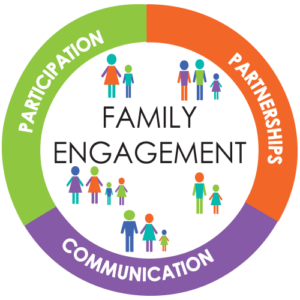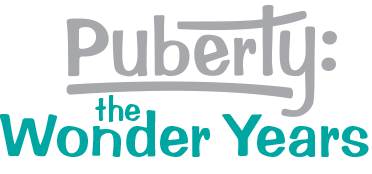Parental influence is one, and possibly the single greatest, of the major factors in determining the sexual behavior of young people. Therefore, Puberty: The Wonder Years includes many activities that promote family engagement, such as encouraging parents/caregivers to talk with their children about family values and guide their children toward behavior that is consistent with their beliefs and values.

How are families and caregivers engaged in Puberty: The Wonder Years?
To engage parents, guardians, caregivers, and other family members, Puberty: The Wonder Years includes the following family engagement resources to be shared with families. All of the following family resources are available in English and Spanish.
- Family Notification Letter: Schools send home a letter that explains the puberty education program and notifies parents of their rights. A sample letter has been provided for schools to modify, personalize, and print on school stationery. Educators are encouraged to attach a curriculum outline to this letter. Keeping parents informed about the puberty lessons can help develop trust and support for the curriculum.
- Curriculum Outlines: An outline of the lessons and student learning objectives is available for each grade of Puberty: The Wonder Years. The outline(s) can be attached to the Family Notification Letter to let parents and other family members know what will be taught in puberty classes. Access the outlines here: Grade 4 English and Grade 4 Spanish; Grade 5 English and Grade 5 Spanish; and Grade 6 English and Grade 6 Spanish.
- Passive Consent Form: Offer parents the opportunity to excuse their children from any lessons they find objectionable. Meet with parents to discuss the reasons they are considering having their children excused. Often, with an opportunity to see the curriculum and talk more about the topics that will be offered, parents will reconsider. By respecting each parent’s right to decide what is appropriate for their child, you are also maintaining the integrity of the curriculum that was selected by the school district as being most suitable for your community. A sample exclusion or “opt out” form has been provided.
- Family Partnership Fliers: These informational fliers describe the topics covered in the lessons, such as puberty, hygiene, and communication. The fliers also equip parents and other trusted adults for conversations with their children. They provide parents with information and helpful tips for maintaining a positive relationship with their children during puberty.
- Family Activity Sheets: Homework assignments encourage the students to discuss issues related to puberty, relationships, and sexual behavior with their families. If a parent is not available for these assignments, students are asked to identify another trusted adult with whom they can talk. Families have expressed appreciation for this family discussion tool.
- Student Activity Sheets: Some of the classroom activities utilize activity sheets. When the students take their activity sheets home, they may be helpful as discussion starters.
- Home Discussions: During the lessons, some issues or topics that are not approved for classroom discussions may arise. At times like these, the students are encouraged to ask their parents, caregivers, or other trusted adults for help in clarifying the topic.
- Lesson Activities: Throughout the lessons, students are encouraged to identify their trusted adults and reminded to talk to a trusted adult whenever they have questions or concerns.
- Parent Presentation Slides: A set of slides that overviews each grade of the curriculum is available for schools to share with parents and caregivers. The slides can be personalized and shown at preview events or posted to the family portal on the school website.
- Parent Preview: Schools can arrange for parents to access a digital preview of the curriculum. This helps parents know what is being taught so they can reinforce the learning at home and make decisions about how their children will participate in the classe.
- Social Media Toolkit: Each purchase of the curriculum includes a toolkit with images and messages to inform families about what their children will learn in class. These resources are available in English and Spanish and can be posted to Facebook, Twitter, Instagram, Pinterest, and LinkedIn.
- Parent Resources on the Website: Supportive and informative resources are provided on the Parent Resources page.
Reading Resources for Family Engagement Time
- “Puberty Books” provides a list of options for parents, caregivers, and other trusted adults to choose for the young people in their lives and to read together.
- “Puberty Books in English and Spanish” provides a list of books that are available in both languages.
- “Books for Parents” provides a list of books parents and caregivers can read to prepare for family discussions.
“Thank you for teaching these classes! The homework caused us to talk about something we haven’t known how to begin. We had a great conversation at the dinner table.”
~anonymous parent~
Updated 2023-6-24
